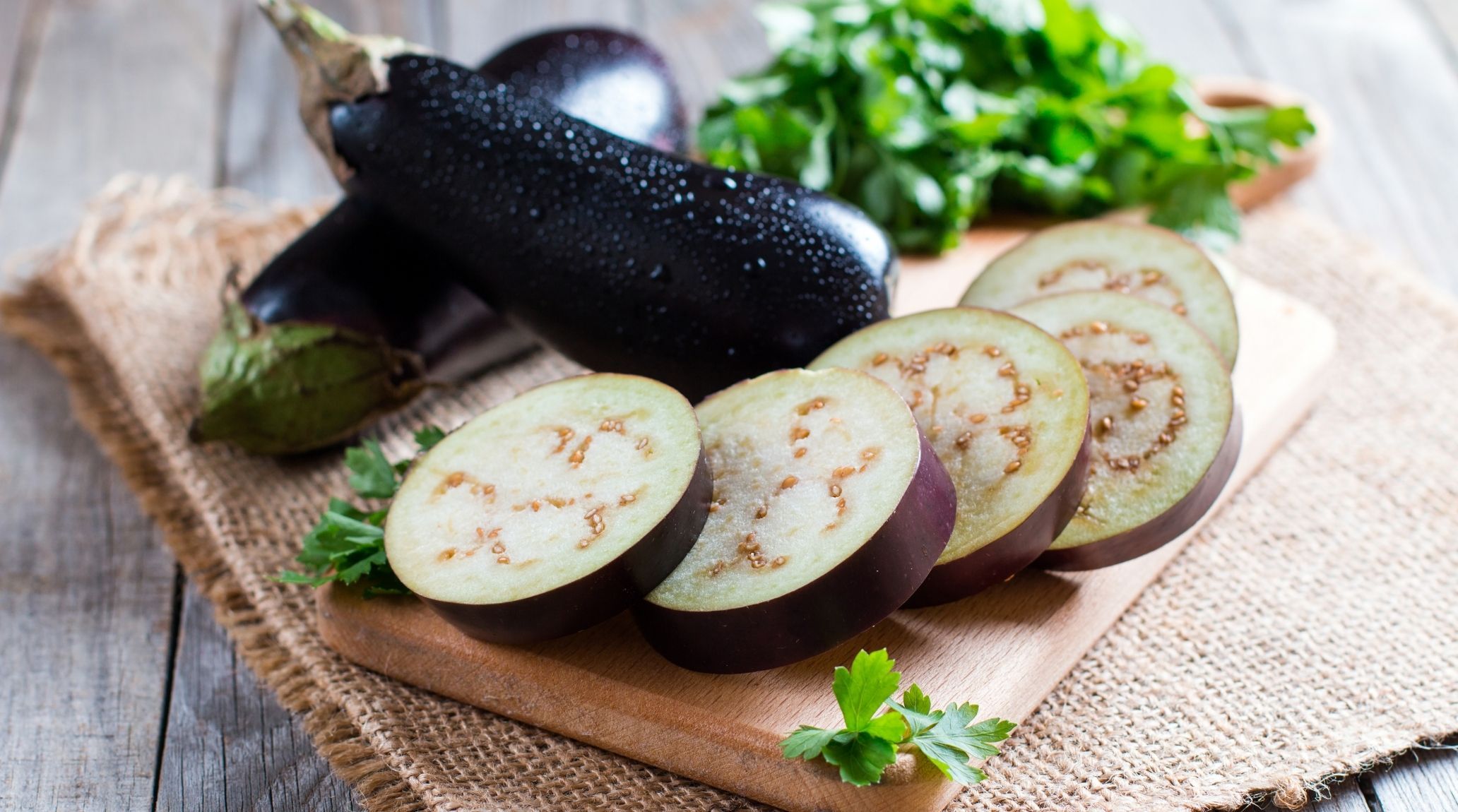
“
Eggplants, often seen as a culinary staple, are more than meets the eye. Known botanically as berries and related to tomatoes and potatoes, they hold a wealth of intriguing facts. This blog, "Interesting Facts About Eggplant," delves into their diverse history, unique health benefits, and remarkable culinary versatility. Join us as we uncover 20 fascinating facts about eggplants that showcase their value and versatility in both the botanical and culinary worlds.1
1
”
Eggplants, botanically classified as berries, belong to the Solanaceae family alongside tomatoes and potatoes. Though often treated as vegetables, their fruit classification reflects their distinct role in both culinary and botanical contexts.1
They are warm-season vegetables thriving best in temperatures between 70 and 80 degrees Fahrenheit. They require these conditions to grow optimally and produce high yields, making temperature control crucial for successful cultivation. 2
Eggplants reach maturity in 100–120 days when started from seed. This growth period is essential for developing fully ripe fruit, requiring patience and proper care for successful cultivation. 3
They are crucial in global agriculture, especially in India and China. They provide high yields and income for smallholder farmers through both domestic markets and exports, supporting local economies. 4
The name "eggplant" comes from early European varieties resembling eggs. These pale, white fruits inspired the evocative name for this versatile vegetable, now available in many colors. 5

Eggplants showcase a variety of colors, including deep purple, white, green, and striped. These pigments, such as anthocyanins, not only enhance their visual appeal but also boost their nutritional value.
Eggplants can self-pollinate, but pollinators like bees significantly improve yields and fruit quality. This interaction highlights the collaborative relationship between nature and agriculture.6
Eggplants have been grown in space to study plant growth in microgravity. NASA and other agencies explore their cultivation for future space missions and long-term habitation. 7
Pickling extends eggplants’ shelf life and adds tangy flavor. Popular in Mediterranean and Middle Eastern cuisines, pickled eggplants serve as a flavorful side dish or appetizer. 8
Compounds in eggplants can help lower cholesterol levels. Their fibre and antioxidants support heart health by balancing cholesterol and reducing inflammation, making them a beneficial addition to a heart-healthy diet. 9
Eggplants contain solanine, a toxic compound that can harm animals if consumed in large amounts. While generally safe, pets like dogs and cats should avoid eating eggplants. 10
Consuming eggplant flowers or leaves can be harmful to human health. These parts contain solanine, a toxic compound that may cause nausea, vomiting, or other adverse effects if ingested in significant amounts.11
In parts of Asia, elephants enjoy eggplants as a tasty, hydrating treat. These vegetables provide essential hydration and are cherished by these majestic creatures for their unique flavour and juiciness. 12
By the 5th century BC, the Chinese were cultivating eggplants systematically. Their early agricultural practices helped establish the foundation for growing eggplants and contributed to the vegetable's spread and popularity in various cultures. 13
Eggplants contain trace amounts of nicotine, the same compound found in tobacco, but at very low levels. You’d need to eat 20 pounds of eggplant to match one cigarette’s nicotine. 14

An eggplant from Iowa, USA, weighing 3.778 kg (8 lb 5.3 oz), holds the record as the world’s heaviest. It’s over 10 times the size of a typical grocery store eggplant, comparable to an adult Yorkshire terrier.
Eggplants thrive in warm climates, requiring ample sunlight and well-drained soil. In cooler areas, they’re started indoors and transplanted outdoors after the last frost, ensuring successful growth and harvest. 15
Eggplants are typically started indoors from seeds 6–8 weeks before the last frost. After warming weather, they’re transplanted outdoors, ready to harvest within 70-90 days. 16
Eggplants are low in calories, with only 35 calories per cooked cup, making them ideal for weight management. They add nutritious value to a balanced diet, contributing to overall health without extra calories. 17
Eggplants are often grown with pesticides, so it’s important to wash them thoroughly before consumption. Organic eggplants, grown without synthetic pesticides, are a preferable choice for some consumers. 18


